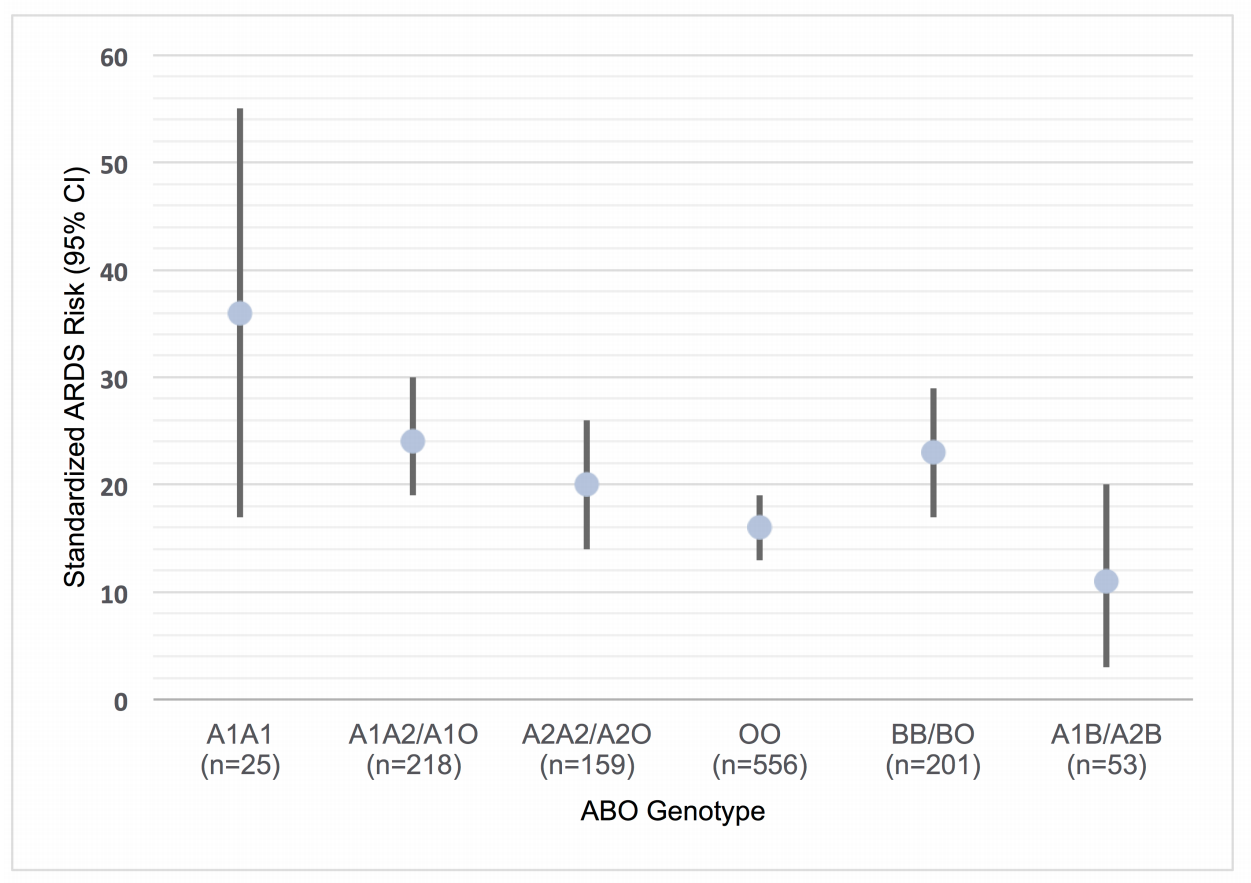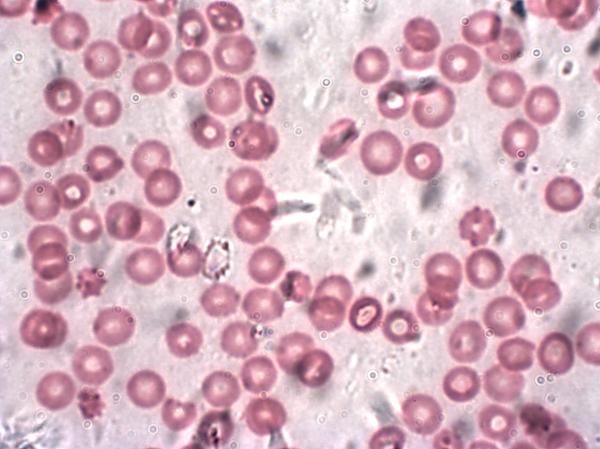There are four different ABO blood types: A, B, AB, and O. These types depend on the sort of glycoproteins (that is, proteins covered with sugars) that decorate red blood cells (RBCs). A person with Type A blood has only the "A" glycoprotein, a person with Type B blood has only the "B" glycoprotein, a person with Type AB has both, and a person with Type O has neither. Blood type is genetically determined by your mother and father.
It has long been known that susceptibility to infectious disease varies by blood type. Specifically, critically ill Type A patients are likelier to develop acute respiratory distress syndrome (ARDS), in which the lungs fill with fluid and are unable to adequately supply the blood with oxygen. ARDS is also often the cause of death in patients with COVID-19.
What is it about Type A blood that makes this outcome more likely? A team of researchers tried to answer that question by examining critically ill or trauma patients for a new paper published in the Journal of Clinical Investigation.
One reason is related to the number of A glycoproteins on the surface of red blood cells and other body cells. There are subtypes of Type A blood. One gene (A1) results in much more of the A glycoprotein on cell surfaces than the other gene (A2). The scientists found that the higher the density of these A glycoproteins, the likelier it is that a sick patient will develop ARDS. (See graph below.)

The researchers further discovered that those with Type A blood were likelier to suffer from inappropriate clotting inside of blood vessels. Clots can break off, and a piece can deposit in an artery in the lungs, where it is called a pulmonary embolism. Emboli block blood flow, preventing proper oxygenation of the blood and even death of lung tissue.
Though the study did not examine patients with COVID-19, the implication is obvious: A person's blood type may have a substantial effect on the outcome for the patient, especially for the roughly 42% of Americans who have Type A blood.
Source: John P Reilly, et al. "The ABO Histo-Blood Group, endothelial activation, and acute respiratory distress syndrome risk in critical illness." J Clin Investig (in press). Published online: September 15, 2020. DOI: 10.1172/JCI139700




